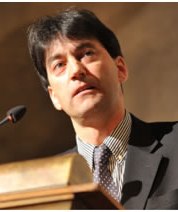 |
||
Accueil > FORUM TERATEC > Programme > Atelier 3
Big Science Meets Big Data
Bob JONES, CERN Abstract : The importance of research data for modern science is growing daily, and new initiatives are required to cope with the resulting “data deluge”. Distributed grid/cloud computing infrastructures are serving more and more international collaborations in many scientific disciplines. CERN operates the Worldwide LHC Computing Grid (WLCG1), which combines the IT power of tens of thousands of computers distributed across more than 150 computer centres in more than 30 countries to meet the needs of the LHC experiments. CERN is actively investigating a number of new approaches and technologies that will help ensure it continues to meet the extreme IT needs of the LHC over its foreseen 15 year lifetime. This presentation will explain how the LHC data is managed today and the future directions being investigated with leading IT companies and research organisations around the world. 1 www.cern.ch/lcg Biography : Bob Jones is head of the CERN openlab project (openlab.cern.ch) which facilitates collaboration between CERN and its industrial partners to study and develop data-intensive solutions for scientists working at the next-generation Large Hadron Collider (LHC). Bob is a leader of the Helix Nebula – the Science Cloud initiative (http://www.helix-nebula.eu/), a public private partnership to explore the use of commercial cloud services for science applications supported by the EC under grant 312301. His experience in the distributed computing arena includes mandates as the technical director and then project director of the European Commission co-financed EGEE projects (2004-2010 http://www.eu-egee.org), which established and operated a production grid facility for e-Science spanning 300 sites across 48 countries for more than 12,000 researchers. |
